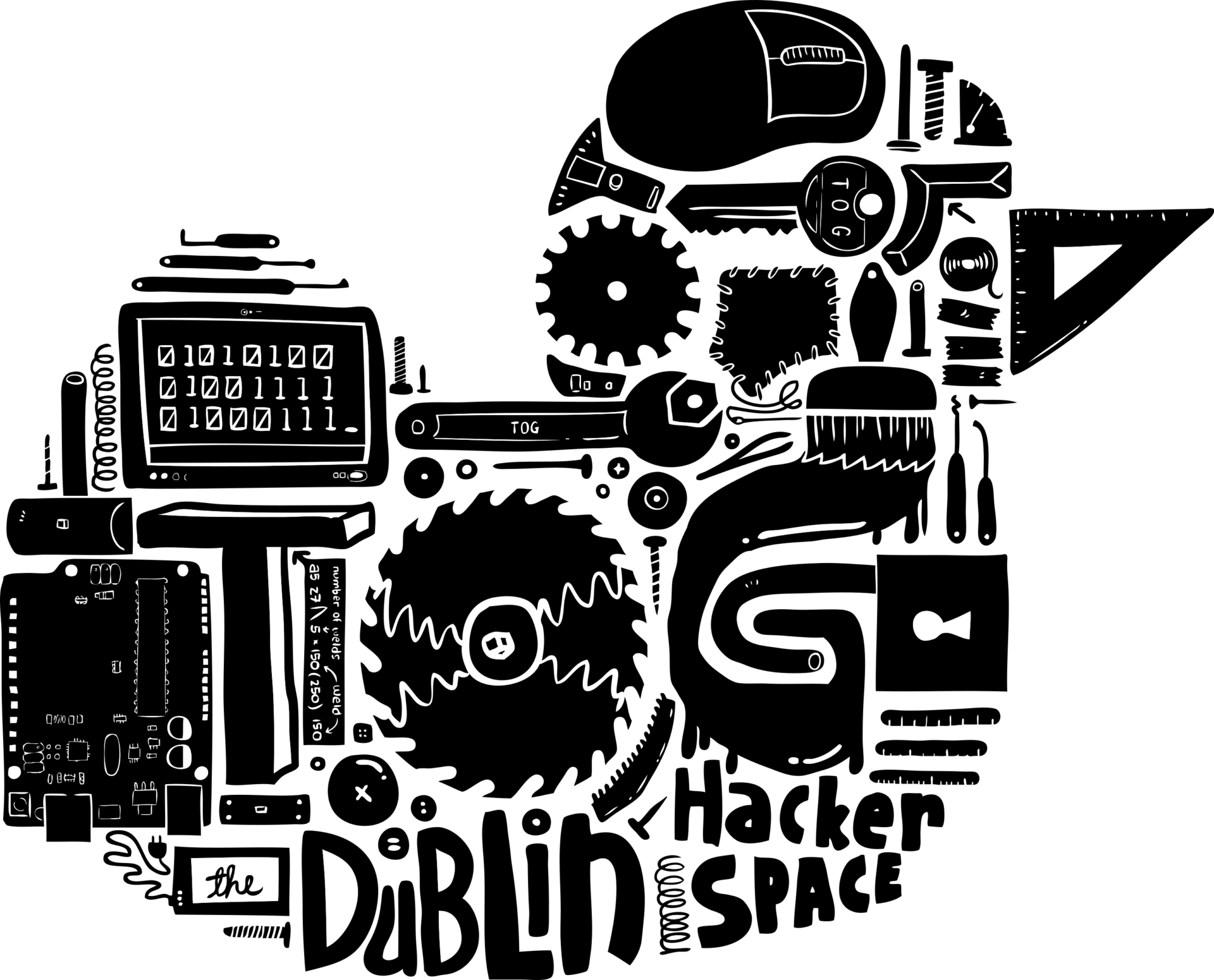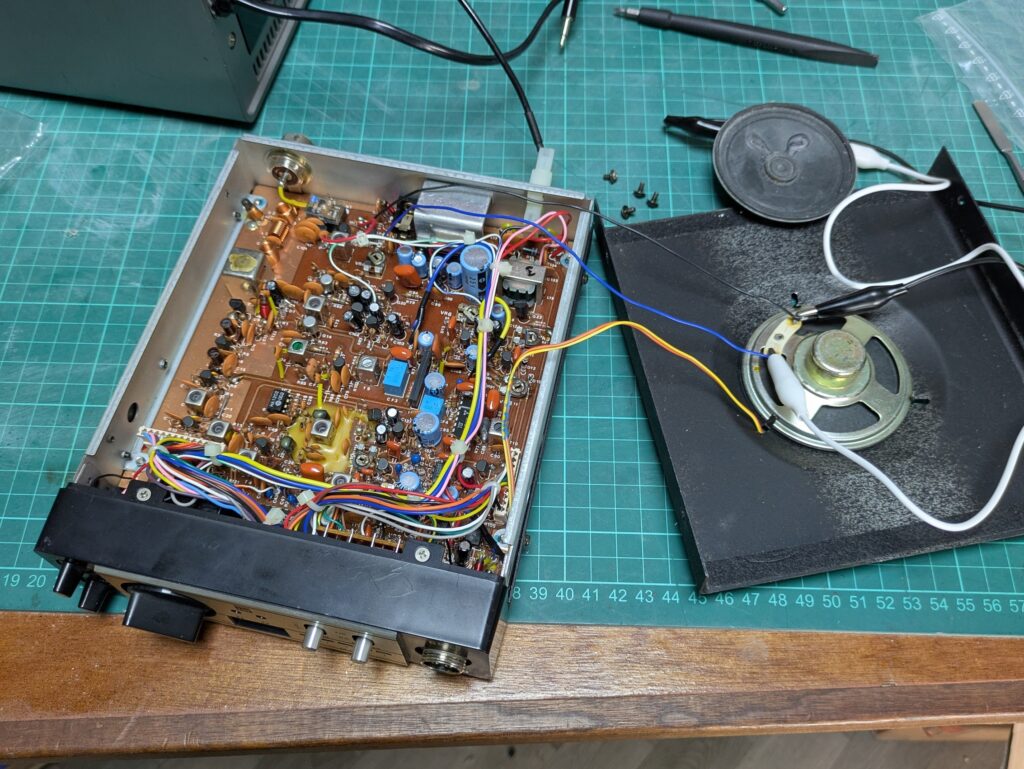Every four years, hackers, makers, and digital mischief-makers descend upon the Netherlands for a one-of-a-kind outdoor hacker camp. WHY2025 – short for What Hackers Yearn 2025 – is the latest in a legendary line of Dutch hacker camps stretching all the way back to the Galactic Hacker Party in 1989. This was the 10th edition, keeping the quadrennial tradition alive with thousands of attendees camping, soldering, coding, and connecting in Geestmerambacht.
The name WHY sparked plenty of jokes — “Why am I here?”, “Why is everything on fire?”, “Why not?” — but the answer, in the end, was always the same: because hacker camp is magic.
Tog was proud to be part of the Irish Embassy, a village formed by members of Irish hackerspaces and our wider community. We pitched tents in the Milliways Cluster, representing Ireland alongside friends old and new. Two Tog members made the trip over — Isabella (Z80Kitty) and Jeffrey Roe, and each has written a short piece about their time at camp below.
🎮 Isabella aka Z80Kitty here :3
My experience at WHY2025 was… chaotic good.
I spent about 99% of my time at the Arcade tent, getting thoroughly destroyed by rhythm games and later by Jeffrey in air hockey. It was brutal, but fun.
That said, I did manage to escape the arcade long enough to give my talk:
🎤 Sega Saturn Architectural Hell – a deep dive into the 90s console with the weirdest architecture I’ve ever worked with. It was stressful, but so rewarding. Big love to the folks who came along and laughed with me (and not just at me).
As a speaker, I discovered the fact I had unlimited club mate, which meant I was coked up on caffeine 24/7, So idk if that was a good thing. There was also golfing, which I sadly never took advantage of. One of the villages had a Cisco tap, which their mix tasted weirdly like mouthwash. They had other stuff on tap but didn’t get a chance to try. They also had a little window with some neat stuff like a boxed copy of OS2 Warped and a pager
But it wasn’t all talks and arcade games. The best part? The people. I had incredible conversations with some of the most interesting, friendly, and weirdly prepared hackers from around the world.
Also, the fog. At night, the camp looked like Silent Hill. Genuinely surreal. Check the gallery and you’ll see what I mean.
🐘 Find me on Mastodon
🛠️ Jeffrey Roe – Delays, Drills & DIY Satellites
WHY2025 kicked off with the most hacker-appropriate challenge: a 6-hour travel delay. I eventually arrived with about 35kg of camping gear and equipment in tow, ready to run three workshops in the Hardware Hacking Area.
The atmosphere? A wonderful blur of fake fog, LED lights, live bands, wild tents, and absolute hacker camp energy. Between sessions, I hit the on-site supermarket (great vegan options!) and caught the nightly chaos of live music and synth beeps.
Over the course of the event, I ran:
Big thanks to the local fablab, Serendiep, for letting me use their drill press before one of the sessions — absolute lifesavers.
Outside of workshops, I also joined in amateur radio fox hunting at the Back to the 80s village, grabbed a tasty breakfast at Hackers @ Tiffany’s, and watched the fog roll in across the camp like some kind of hacker horror movie.
🐘 Find me on Mastodon
📸 Gallery
Relive the fog, the fun, and the flashing LEDs in our full photo gallery:
👉 View the WHY2025 Photo Gallery
🔭 Looking Ahead: 39C3 in Hamburg
The hacker camp may be over, but the hacker calendar rolls on. The next big international event on our radar is 39C3 – the Chaos Communication Congress in Hamburg this December.
It’s the largest European hacker conference and a brilliant chance to reconnect with the community, share knowledge, and of course, hack the planet.
Will we see you there?
💚 Slán from the field,
Tog Hackerspace


























